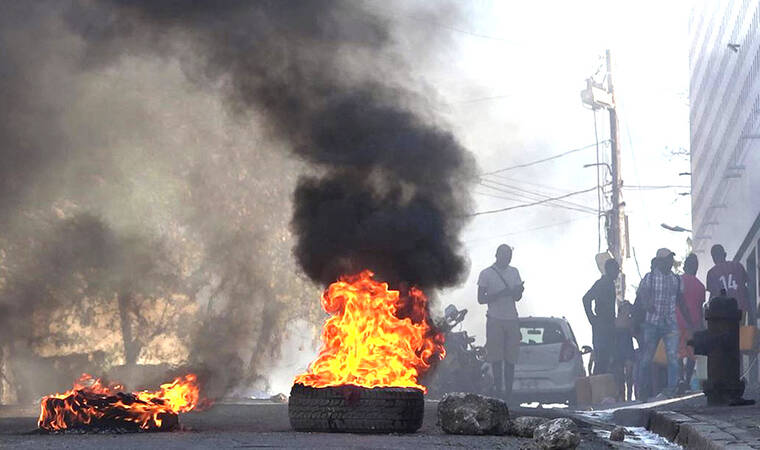Why is Haiti’s economy so much worse than its neighbor’s?
As Haiti continues its descent into chaos, the Dominican Republic continues to prosper. The two countries share the island of Hispaniola and a lot of history, and yet the Dominican Republic now stands as one of the wealthiest nations in Latin America.
An obvious question presents itself: What explains this stark divergence?
One approach is to contrast Black Caribbean culture with Latino culture. I do not want to delve into that rather large set of questions except to observe that for a Black Caribbean nation, Haiti is especially poor — and for a Latino nation, the Dominican Republic has done especially well. So there must be other significant factors in play, and in fact differences in policy largely account for the different outcomes.
Consider agriculture. If you fly over Hispaniola, you can see a notable difference between the Haitian and Dominican sides of the border. The Dominican side has plenty of trees, whereas the Haitian side is denuded. Much of that can be explained by Haiti’s history of weaker property rights.
The deforestation of Haiti dates from at least 1730, when French colonial policies, timber exports and the clearing of the land for coffee production all did damage. That hurt the prospects for Haitian agriculture, but much of the tree-clearing took place in the middle of the 20th century. Haitians have long used charcoal as an energy source, which led to unchecked deforestation, soil erosion and desertification.
In the Dominican Republic, deforestation is also a problem — but not nearly on the scale of Haiti. Forests still cover about 40% of the country’s land (estimates for Haiti have ranged as low as 2%). The Dominican Republic has some national parks and reforestation programs, and developed alternative energy sources to reduce the demand for charcoal. Forest cover, and the quality of the soil, made a comeback.
To the extent that the Dominican Republic still experiences deforestation, it often comes from livestock cultivation, a far more economically productive activity than gathering wood for charcoal.
To citizens of wealthy countries, these differences may not sound enormous. But agriculture is an important driver of early economic development. Surpluses from agriculture enable the accumulation of savings, which finances broader commercial investment and helps people start small businesses. The economy obtains a base for diversifying into manufacturing, as happened in East Asia. Ethiopia’s double-digit growth spurt, before the recent tragic civil wars, also was rooted in agricultural productivity gains.
Today the Dominican Republic is essentially self-sufficient in food, including rice. According to the US government, Haiti now relies on imports for “a significant portion of the agricultural products it consumes,” including 80% of its rice. In 1981, by contrast, food imports were only 18% of the Haitian diet.
There are other areas besides land use and agriculture where there are policy differences between the two countries. The Dominican Republic boosted its growth trajectory with a system of special economic zones starting in the 1980s. Under the program, multinationals were invited to invest in the country, and promised favorable tax and regulatory treatment.
Today more than half of Dominican exports result from these arrangements. Equally important, the program’s 40-year history means that companies now see it as credible, so its benefits should continue. These reforms are considered a major driver of the country’s growth.
Haiti has not done anything comparable. It has many fewer zones, for instance for textile production, part of a program created in 2002 and established in 2012. These arrangements are plagued by uncertain governance, unreliable electricity and inadequate port facilities, in addition to corruption.
Not surprisingly, foreign direct investment in Haiti has been falling. That makes it harder for Haiti to increase wages, gain foreign exchange and improve its reputation as a place to do business.
And all these factors are only a part of the broader comparative story about Haiti and the Dominican Republic. As the tragic story in Haiti unfolds, keep in mind that economic policy really matters, and human lives are at stake.


